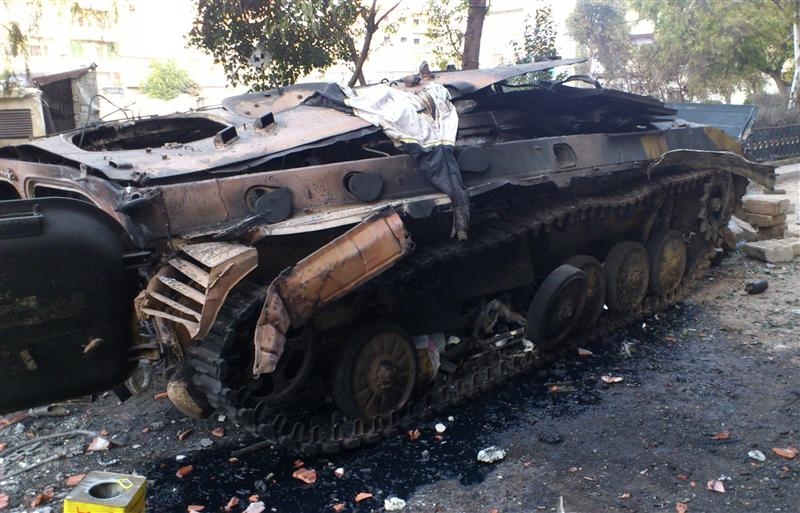Editor's Note: Stephen S. Schneck is director of the Institute for Policy Research and Catholic Studies at The Catholic University of America.
By Stephen S. Schneck, Special to CNN
For years, pollsters and political scientists have been stumped about Catholics.
On one hand, it’s been pretty clear that as American Catholics go, so goes the nation. George W. Bush narrowly won the Catholic vote in 2004 and won a second term. Barack Obama narrowly won the Catholic vote in 2008 and, with it, the White House.
It’s easy to see why Catholics are sometimes seen as the swing voters whose shifting political preferences swing elections.
Nevertheless, the idea of a Catholic bloc is patently ridiculous. As voters, American Catholics mirror the electorate as a whole, divided into Democrats, independents, and Republicans at about the same percentages as all Americans. And it’s hard to trace such political complexity to religious allegiance.
One explanation for why is the sheer number of Catholic voters and their now multigenerational assimilation into American society. About 35 million Catholics voted in 2008. That’s about 27% of all voters.
In the 19th century and for much of the 20th, Catholics self-consciously occupied a distinctive identity in America. Predominantly blue collar, they often lived in white ethnic neighborhoods, attended their own schools and colleges, established their own hospitals and charities, and experienced some level of discrimination.
In those years, Catholics associated overwhelmingly with the Democratic Party, which not only accommodated but promoted policies that advanced ethnic assimilation – everything from minimum wage laws to the GI Bill.
But by finally achieving that assimilation, Catholics in the last 50 years have lost much of their sense of special self-identity. For white Catholics, who are about 60% of the Catholic vote, their distinctiveness in class, education, income, and even ethnicity has grown increasingly ambiguous in America’s famous melting pot.
The melting pot has even transformed Catholics’ relationship to their church. Polling numbers released Friday by CNN about the White House contraception dust-up illustrate this: Only 11% of Catholics polled said they should always obey official church teachings on moral issues like birth control and abortion.
La mère de Langmann, était Anne-Marie Rassam. Avec les cinq Oscars remportés dimanche soir par le film français “The Artist”, “la …
السؤال الكبير المطلوب من "حزب الله" الاجابة عنه: "هل قدر شيعة لبنان أن يبقوا أخصاماً لنصف اللبنانيين ومنبوذين من معظم …

بدأ التردد الذي يعتري الموقف الأميركي إزاء الأزمة السورية والذي خيّم على مؤتمر «أصدقاء الشعب السوري» في تونس، يثير كثيراً من الشكوك والجدل لدى المعسكر المعارض لدمشق، ما استدعى لقاء جمع وزير الخارجية السعودية الامير سعود الفيصل مع نظيرته الاميركية هيلاري كلينتون على هامش هذا المؤتمر.يعزو خبير ديبلوماسي لبناني عائد من زيارة لواشنطن هذا التردد الأميركي الى إنقسام الادارة الاميركية الى فريقين: الأول، سياسي يؤيد المعارضة السورية ويدعمها في سعيها الى إسقاط النظام تحت شعار "تحقيق الحرية والديموقراطية للشعب السوري".
أما الفريق الثاني فهو عسكري، يبدي مخاوف وخشية من أن يكون البديل من إسقاط النظام، سيادة القوى الأُصولية المتطرفة التي يعتبرها متعارضة مع المصالح الاميركية ويضعها في خانة "الإرهاب"
Khazen History


Historical Feature:
Churches and Monasteries of the Khazen family

St. Anthony of Padua Church in Ballouneh
Mar Abda Church in Bakaatit Kanaan
Saint Michael Church in Bkaatouta
Saint Therese Church in Qolayaat
Saint Simeon Stylites (مار سمعان العامودي) Church In Ajaltoun
Virgin Mary Church (سيدة المعونات) in Sheilé
Assumption of Mary Church in Ballouneh
1 - The sword of the Maronite Prince
2 - LES KHAZEN CONSULS DE FRANCE
3 - LES MARONITES & LES KHAZEN
4 - LES MAAN & LES KHAZEN
5 - ORIGINE DE LA FAMILLE
Population Movements to Keserwan - The Khazens and The Maans
ما جاء عن الثورة في المقاطعة الكسروانية
ثورة أهالي كسروان على المشايخ الخوازنة وأسبابها
Origins of the "Prince of Maronite" Title
Growing diversity: the Khazin sheiks and the clergy in the first decades of the 18th century
Historical Members:
Barbar Beik El Khazen [English]
Patriach Toubia Kaiss El Khazen(Biography & Life Part1 Part2) (Arabic)
Patriach Youssef Dargham El Khazen (Cont'd)
Cheikh Bishara Jafal El Khazen
Patriarch Youssef Raji El Khazen
The Martyrs Cheikh Philippe & Cheikh Farid El Khazen
Cheikh Nawfal El Khazen (Consul De France)
Cheikh Hossun El Khazen (Consul De France)
Cheikh Abou-Nawfal El Khazen (Consul De France)
Cheikh Francis Abee Nader & his son Yousef
Cheikh Abou-Kanso El Khazen (Consul De France)
Cheikh Abou Nader El Khazen
Cheikh Chafic El Khazen
Cheikh Keserwan El Khazen
Cheikh Serhal El Khazen [English]
Cheikh Rafiq El Khazen [English]
Cheikh Hanna El Khazen
Cheikha Arzi El Khazen
Marie El Khazen